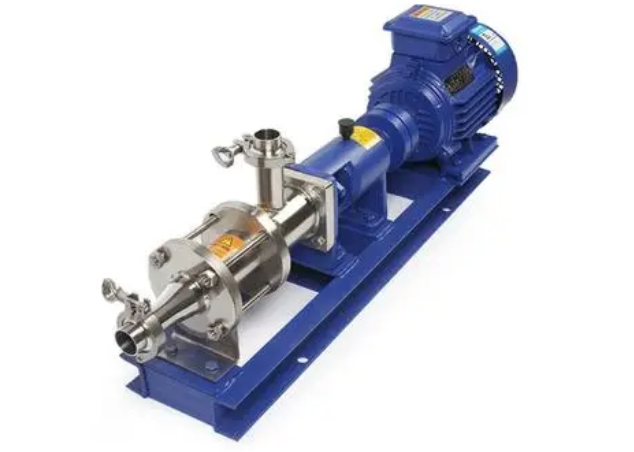Single screw pump stator material
The stator material of a single screw pump is a key component of the pump, and its selection directly affects the performance and service life of the pump. The selection of stator material is usually based on comprehensive considerations of factors such as the characteristics of the medium, the conditions of use, and the economy. The following is a detailed analysis of the stator material of a single screw pump:
1. Types of stator materials
Rubber material
Nitrile rubber: This is the stator material commonly used for single screw pumps. It can withstand a maximum temperature of +100°C, has excellent wear resistance, and has good aging resistance, steam resistance, and flame resistance. It is generally suitable for conveying media such as water (sewage), mud, and gasoline.
Fluororubber: It has better performance than nitrile rubber, can withstand a maximum temperature of +150°C, and has excellent wear resistance, aging resistance, steam resistance, and flame resistance. It is generally used to convey media such as glue, biogas, biogas residue, and concentrated sulfuric acid. It has high performance but a higher price.
Food rubber: Food-grade rubber, generally conveys non-corrosive food oils and materials with relatively high hygiene requirements, such as vegetable oil, mineral oil, honey, liquid chocolate, etc.
Other rubber materials: such as butyl rubber, silicone rubber, etc., also have their own unique properties. For example, butyl rubber has good wear resistance and oil resistance, while silicone rubber has good high temperature resistance and aging resistance.

Metal material
Although the stator of a single screw pump is usually made of rubber, in some special occasions, metal materials (such as stainless steel, cast iron, alloy steel, etc.) may also be used as the bushing or other parts of the stator. These metal materials have the characteristics of high strength, corrosion resistance, and high temperature resistance, and are suitable for specific working environments and media.
2. Basis for selecting stator material
Medium characteristics: including the pH, temperature, viscosity, corrosiveness, and impurity content of the medium. These factors will directly affect the selection of stator material and the operation effect of the pump.
Conditions of use: including factors such as temperature, pressure, and medium flow rate. For use under special conditions such as high temperature, high pressure, and high speed, it is necessary to select a stator material with high heat resistance, high pressure resistance, and high wear resistance.
Economic efficiency: The prices of stators of different materials are different, and they need to be selected according to actual needs and economic conditions. When selecting the stator material, it is necessary to comprehensively consider factors such as performance, material cost and maintenance cost to select a material with high cost performance.
3. Precautions
After selecting the stator material, dynamic tests should be carried out according to actual conditions to verify its performance and reliability under actual working conditions.
During use, the stator should be checked and replaced regularly to ensure the normal operation and service life of the pump. Especially for rubber stators, due to their easy wear and aging, regular inspection and maintenance are required.




